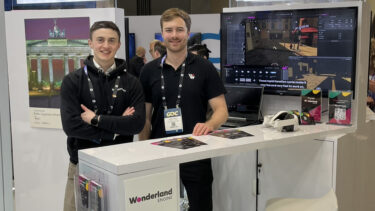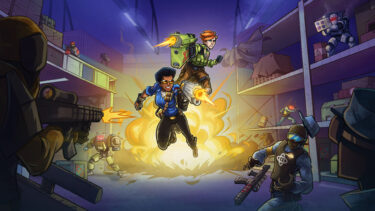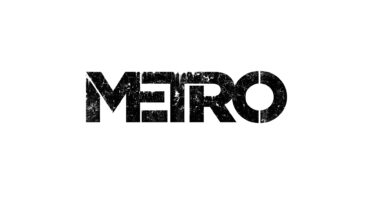Good VR browser apps are rare. Although the WebXR specification exists, there are hardly any more than basic applications. This is about to change.
An article by Jörn Schumacher
The “Wonderland Engine” from Cologne, Germany, promises a small revolution: high-quality VR and AR applications that run in any browser, completely platform-independent. Previous engines like Unity theoretically support web applications, but this was not a priority during development.
The new Wonderland engine is intended to be a breath of fresh air: it is a 3D development platform and editor for creating web-based AR/VR experiences with high resolution and high frame rates. Take a look at the sample applications to see why this could be a small revolution for VR.
The Wonderland Engine harnesses the power of hardware
WebXR has been making it possible to run apps in the browser on all VR headsets, PCs, and smartphones for ten years now. With the Wonderland Engine, however, it is possible to harness the full power of the hardware. For example, the developers at Wonderland have ported the title “Dead Secret Circle”, an elaborate VR game for the Meta Quest, to the browser. And you can’t tell the difference from the native application.
The team received the Unity projects for the first levels of the game from the original developer, Robot Invader, and rewrote the code using TypeScript. This combines the platform independence of the web with sophisticated 3D performance. Almost all VR headsets support this technology because almost all of them have their own web browser. Only the Playstation VR 2 is different. Users only need a web URL to access it. This can be shared in the usual ways: via email, social media, or as a QR code. No download or installation is required.
Full access to graphics capabilities coming soon
Until now, WebXR applications had more of the charm of mid-2000s Flash games. There was big graphical content, but no lighting effects or reflections. But now the difference between a web application and a VR application is indistinguishable. Jonathan Hale, founder and CEO of Wonderland GmbH, founded the studio Vhite Rabbit with his former partner Florian Isikci in 2019, shortly after the release of Quest 1, and developed the game Barista Express for WebXR. “It was highlighted by Meta itself at the time as an exemplary WebXR application,” says Hale.

Strictly speaking, there are still differences between a native application and WebXR, says the Wonderland boss, albeit invisible ones. The Web APIs simply do not yet give you full access to all the features that the graphics cards actually offer. This is true, for example, for generic computing functions. “You still have to find creative solutions to get the GPU to do the work you need it to do.” In the future, however, the Web standard “WebGPU,” the next generation of WebGL, will change things. GPU-based applications such as machine learning, AI, and computer vision will be possible in the browser.
Another major advantage of being independent of platforms and device manufacturers is that if you start a game on a device such as an iPad and want to continue playing it later on a desktop computer or in a VR headset, you can do so without any problems. The saved game states are also the same everywhere.
More freedom in Wonderland
This should also please Apple: Apps created with the Wonderland engine will of course run in the browser on the Vision Pro. Programming specifically for the Vision Pro is still unattractive to traditional game developers, as the target audience is too small for the effort, and Apple does not place a high value on games.
A studio always has to decide which market and which headset they want to develop for: the HTC Vive, the Pico, the Meta Quest, and so on. The Wonderland engine eliminates that need because it only has to be developed once — for WebXR. “At least the browser team at Apple knows us,” says Hale when asked if Apple has heard of Wonderland. “And they really like what we’re doing,” he laughs.
The engine is initially free if annual revenue from applications developed with Wonderland does not exceed $120,000. Until then, developers cannot exchange Wonderland’s loading screen. “When agencies work with the Wonderland engine for larger companies — for example, for a well-known large soda company — they naturally want to integrate their own logo. Then a company license is required, which costs a monthly fee. Unity does the same thing.
Jonathan Hale started programming at the age of 11. He studied computer science at the University of Konstanz, founded “Vhite Rabbit” in 2018, handed the company over to his colleague Florian Isikci in 2020, and founded Wonderland GmbH in Cologne to devote himself entirely to the new web engine. Wonderland now has 12 employees. The company is planning its own multiplayer service and host for WebXR applications in the near future.
More than just a game engine
Chief Operating Officer Sören Syrbe adds in the interview: “We always talk about a game engine, but we also mean all other types of applications. Apps built with Wonderland can interact with any web API, be it social media, WordPress or financial data APIs.”
Syrbe: “Especially in the US, it is common for large companies to offer VR training to their employees. With native VR, you always have to choose a specific headset manufacturer in advance. With WebXR, that doesn’t matter. Employees can even participate from their desktop or mobile phone if there are not enough headsets available.”
The Wonderland developers see another large field in product configurators in VR that run in all browsers. It is conceivable, for example, that a furniture manufacturer’s website could be used as a virtual store that you can visit in VR and try out a sofa in AR right in your real living room. Who knows, maybe the old dream of the 3D Internet will become a reality for everyone.
What is now a website can be transformed into a 3D world with little effort. How about a newsroom that I can walk through as a visitor, with an adjoining cinema for videos or lectures, and a lounge to chat with other readers or editors — all in the browser? In the much-hyped metaverse, users are usually tied to a single company. In Wonderland, you would be free.
Source: Mixed News




